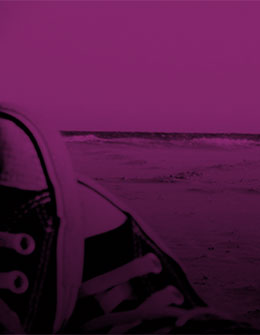Your heart is probably in the right place, so that’s a good start. But if want to actually help a friend, read this first!
1. “Get over it.” “Man up.” “Stop being a target.”
Even when it comes to training pets, it’s generally acknowledged that rewarding good behavior is most effective, so why do some people still think “tough love” is a good idea when it comes to humans?
Why is tough love not effective? According to Dr. Jay Belsky in Psychology Today, “it takes more analysis to figure out that what was done is mistaken than that it is correct.” In other words, it’s harder to identify our behaviors or actions that are responsible for negative outcomes than it is to focus on positive and rewarding behaviors.
So instead of harshing on a friend and dismissing their needs, it’s way more effective to provide support and encourage positive actions.
2. “You look great. Did you lose weight?” “You’re so skinny, eat something.”
Those types comments and well, any remark that focuses on weight or appearance, don’t really serve any purpose other than supporting the notion of certain beauty standards. Plus, to someone with body image issues or an eating disorder, such comments can be triggering.
Even talking badly about your own bod, like complaining about your belly and arms during locker room gossip, further reinforces a harmful set of body standards. Those self-deprecating comments do more than chip away at your own self-image, they shape how others see themselves as well.
It’s not easy in the age of photoshop, filters and obsessing over the perfect selfie, but we could all do a better job of reminding ourselves that we’re more than the sum of our physical parts!
3. “You can copy my answers.”
The pressure to succeed can be totally overwhelming, so we understand wanting to take a shortcut. And we get it, you want to “be a friend,” so offering to let someone copy your work seems like a good fix, but it’s not a real fix.
Why? Because when you don’t put in the effort yourself, you aren’t learning the material and run the risk of falling even further behind. Better idea: offer to help them study.
4. “I don’t want to get him/her in trouble.”
Some bad decisions were already made, and a friend is in really bad shape after drinking too much? Don’t let another bad decision lead to tragedy. Stay with your friend, check—and keep checking (a person’s blood alcohol concentration (BAC) continues to rise even while he/she is passed out! So they may seem OK at first, but that can change.)—for the following signs:
– Try to wake them up. Call their name, shake them, pinch their skin. If they don’t respond, CALL 911!
– Check their skin. If his or her skin is pale or bluish, or is cold or clammy, CALL 911!
– Check their breathing. If it is irregular, or very slow/shallow, CALL 911!
Want to know more about helping a friend and having their back when it matters most? Get involved and take action via our #GotYourBack campaign!




